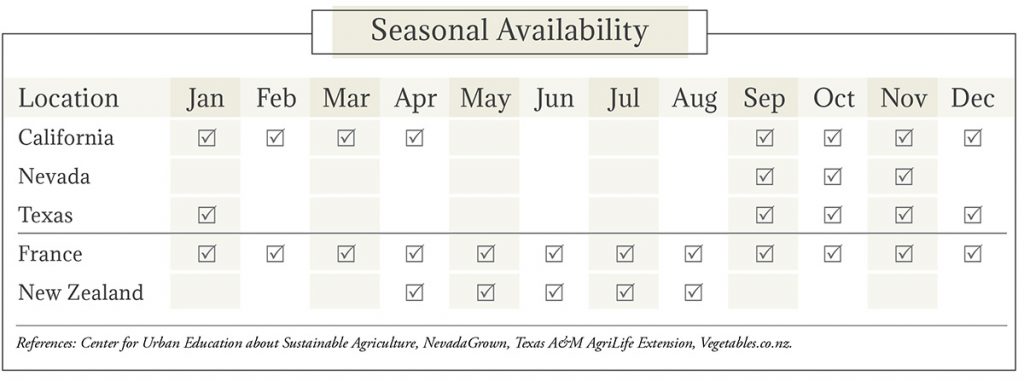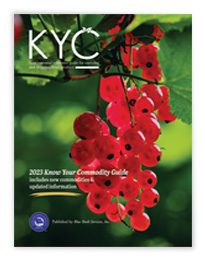Jerusalem Artichoke Market Summary


Image: Stocktur/Shutterstock.com
Jerusalem Artichoke Market Overview
The Jerusalem artichoke (Helianthus tuberosus) is not from Jerusalem nor is it in the same family as artichokes—rather, it is native to the United States and Canada and more closely related to sunflowers. Its name’s origin is unclear, though one theory links it to pilgrims viewing North America as a “new Jerusalem” or cultivators comparing the tuber’s taste to artichokes. Another theory posits the name comes from the Italian word girasole for sunflower. Unlike traditional globe artichokes, which originated in the Mediterranean, Jerusalem artichokes have a long history of cultivation in the central and upper regions of North America. They were later introduced to temperate regions around the world. Today, they are cultivated commercially in China, France, Germany, Italy, Indonesia, Australia, and other countries for fresh consumption, processing, feed stock, and export. The plants grow wild and are often considered an invasive weed. This is somewhat ironic since domestic production does not meet demand and the tubers are imported. Specialty producers treat Jerusalem artichokes as a very versatile, gourmet root vegetable under multiple names such as Sunchoke (created and trademarked by Frieda Caplan) and lambchoke, as well as sunroot, wild sunflower, earth apple, earth pear, and topinambour (in France and Germany). They have also been called French potatoes, German turnips, and Canadian artichokes or truffles. They can be sliced and eaten raw (after washing the edible skin) and are variously described as sweet, savory, nutty, and crunchy, similar to water chestnuts, jicama, or milder radishes. They are often boiled, roasted, or mashed, with a flavor very similar to potatoes or artichoke hearts. They can also be fermented or pickled, and ground into flour. Jerusalem artichokes are a popular addition to salads, soups, stews, sauces, and relishes, and have become increasingly popular with chefs as an alternative to potatoes.
Types & Varieties of Jerusalem Artichokes
Jerusalem artichokes look similar to ginger root or turmeric and potatoes. They can be short or long and brown, white, red, purple, or grey in skin color. Wild tubers are often red and plants are spread across fields; when cultivated, they appear white and clustered together. Tubers are oblong, with lumps or knobs. The inside is white until exposed to air when the flesh will begin to darken. More than 200 varieties of Jerusalem artichokes exist including Clearwater, Columbia, Mammoth, Oregon, Red Fuseau, Stampede, and White Fuseau.

The Cultivation of Jerusalem Artichokes
Jerusalem artichokes are a hardy perennial able to grow well in most soils. Ideally, the ground is loamy, loosely packed, and with a slightly alkaline pH value of around 7. Temperatures between 65 to 80°F are preferred for optimal growth, along with 125 or more frost-free days. More sunlight is needed for the initial growing stages, then less is preferable as the tubers form. Precipitation will aid in growth, especially during sprouting, but too much moisture will waterlog plants. In commercial production, Jerusalem artichokes are raised annually, despite their perennial nature. Growth takes 7 months on average, seeds are often planted in early spring for best yields. Some weeding may be needed early, but eventually rows will meet via creeping rootstocks and tops dominate available sunlight. In the late summer, tuber formation begins. Each root can yield between 75 and 200 tubers on an annual basis. Planted tubers must have at least a couple buds. Ridging helps conserve water and will simplify harvesting. Sprouting will usually begin between 10 and 17 days, provided ground temperature is not below 44°F. A single tuber can yield 20 or more additional tubers. The tall, exposed portion of the plant, which resembles a sunflower with bright yellow blossoms, should be removed before harvesting tubers, similar to potatoes, in the fall. Growers often use modified potato diggers to agitate soil and free tubers. It should be noted that Jerusalem artichokes can be more firmly attached to their stem and root systems than other tubers. Machinery is likely to miss a sizeable portion of the tubers, including unmodified potato diggers, which can make large-scale cultivation difficult. Jerusalem artichokes meant for retail sale should be firm, smooth-skinned, and plump with no shriveling, sprouts, or mold. Tubers meant for future plantings rather than consumption can be left in the ground until spring, and will not be damaged by frost.
Pests & Diseases Affecting Jerusalem Artichokes
Unlike artichokes, Jerusalem artichokes are not particularly susceptible to pests or diseases. Fungi, however, including powdery mildew and sclerotinia are cause for concern. Mosaic virus can be a threat, and certain crop rotations cause problems. Rotating with bean and mustard plants may lead to downy mildew, rust, or southern stem blight. Challenging pests include nematodes, cabbage worms, grubs, slugs, and moths. Silvery checkerspot butterflies are known to use the plant as a larval host, producing one or two broods in northern areas in June and July, and three to four broods in southern states in May and September.Storage & Packaging of Jerusalem Artichokes
After harvest, tubers should immediately be stored at 32 to 36°F with 90 to 95% relative humidity. Thin skin makes the tubers susceptible to decay, injury, and moisture loss. Under ideal conditions, Jerusalem artichokes can be stored for several months, and the tubers are said to sweeten with age. Temperatures at or below freezing for extended periods will affect taste. Jerusalem artichokes are not sensitive to ethylene and do not produce the gas. Those bound for the fresh market may be wrapped in plastic to retain moisture. References: Clemson Cooperative Extension, Michigan State University Extension, North Carolina Cooperative Extension, Texas A&M AgriLife Extension, University of Wisconsin-Extension.

